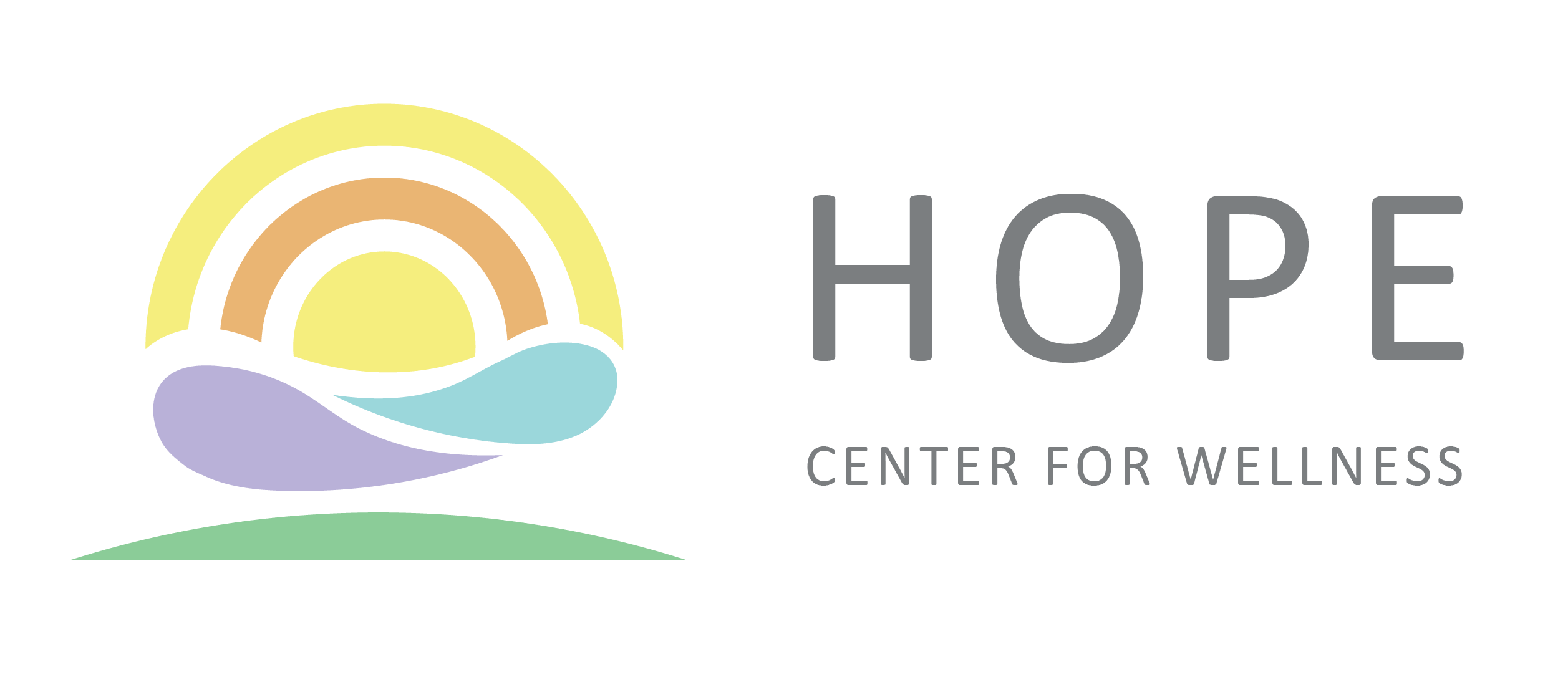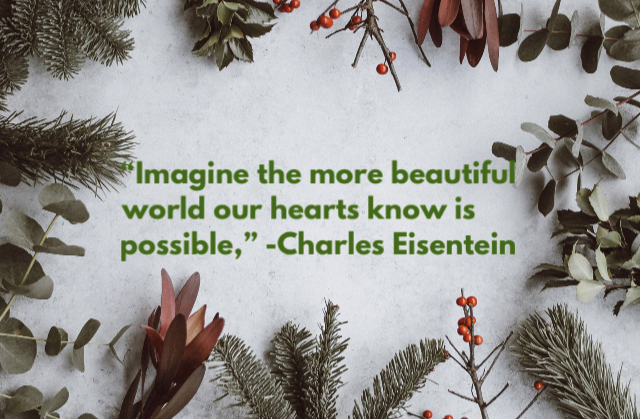The end of the year is one of my favorite parts of the year in my personal life and for my work as a therapist. As many, I enjoy the holiday season because of the joyful spirit, the sense of hope, and celebrating togetherness. I particularly love the opportunity to pause with more intentionality, to reflect on lessons learned, to look and appreciate growth, to explore what strengths and qualities allowed me/others to manage the year and meet our goals, and to set intentions for the following year.
While the holiday spirit can still be felt, this year will be different for all of us. We have grappled, and are still grappling, with incredible losses including loss of loved ones, life as we knew it, our ability to move freely, jobs, income, etc. Some people won’t travel to be with their loved ones, and even if some choose to travel some of their loved ones may not be there. Some lost their jobs and income and may not be able to offer their families what their hearts may have desired. Some people may be ill. Some people may be experiencing depression, anxiety, grief or trauma that makes it more difficult to enjoy this season.
As we move towards a new year, it’s important to pause and look at what this past year has meant to us. Our brains want to move past things fast to protect us from the overwhelm of thinking about things that do not feel great, and our experiences are buried away or repressed. But when things are buried away without processing they often come back in one way or another in the future (through behaviors, emotions, thoughts, sensations, etc.).
Since the pandemic started, as therapists we have tried to name all of what has happened this year and provide education on our emotional responses to a crisis or an unexpected situation like a pandemic to normalize our emotions. From the mental health perspective, naming and accepting things that have occurred as painful or difficult as they may be, it’s a part of a healthy process that leads towards healing.
For instance, it’s okay to acknowledge this year has been hard (or name it in whichever way feels true to you.) Identify what has been hard about it or identify the reasons why you have labeled the year in that way. And then, after pausing and naming it, create some space to look at all of what the year offered, in other words, look beyond the difficulties. You may ask yourself:
What else did the year bring?
What other experiences other than difficulties did I have?
What are some of the things I appreciated about this year?
And don’t stop at naming and accepting, we then activate our hope and resilience to provide us a sense of possibility and wellness.
Here are some wellness tips to make the best out of this holiday season, to process and practice activities that will lead towards our continued healing and to reflect on a difficult year while maintaining and cultivating hope.
- Create space to let out and let in. This has been a rough year. There is no sugar coating it. Begin your reflective period by naming what you experienced this year, name emotions you felt, how you think this year went, etc. And then create space to take deep breaths and exhaling out anything you don’t need to hold on to. You may say:
Breathing in hope (as you inhale), breathing out doubt (as you exhale)
Breathing in health (as you inhale), breathing out illness (as you exhale)
Breathing out love (as you inhale), breathing out hate and resentment (as you exhale)
Feel free to add any phrases as you breathe in and out, recite positivity messages as you inhale, and anything you want to get rid of or no longer serves you as you exhale.
2. Reflect on your strengths and qualities that allowed you and your family to manage the pandemic the best you could. Some reflection questions you can ask yourself:
What are some of the qualities I have within me that helped me get through this [ list them all].
What are some strengths and qualities I didn’t know I had that I discovered this year?
What are some strengths and qualities I found within me that I want to continue to cultivate?
What did I accomplish despite being in a pandemic?
Make reflection an experience and schedule dedicated time for this activity. Set the mood by having soothing or inspiring music in the background (I often have meditation or piano music), light a candle if you have one and sip on your favorite calming tea. This can be an activity you do alone or with family and friends.
3. Identify what are things/lessons about this past year you don’t want to forget that may be important for you to remember in the future.
For instance, I want to remember how much I missed not being able to embrace loved ones with hugs and what it was like to not be able to spend quality time. In the future, I don’t want to take for granted time with family and friends and will remember to practice my full, mindful and loving attention when I am with them. Now write your own list on lessons to remember.
4. If you have lost loved ones, honor them with a holiday ritual. Holidays without our loved ones can be hard, particularly if you are in the denial, anger, depression stages of grieving. David Kessler, a leading grief counselor and author of Finding Meaning, the Sixth Stage of Grieving, says that our connection with our loved ones remains and can be cultivated after their passing. He says that part of our task is to remember our loved ones with more love than pain. This is a good opportunity to search through loving and positive memories of our loved ones and to uplift them and create a new experience with those memories. A few ideas include:
Making a playlist with your loved one’s favorite songs
Make their favorite dish for your holiday dinner
Decorate a special ornament in their honor
Write out your favorite quotes/sayings from them
Be creative in how you want to honor and connect with a loved one.
5. Identify what you are grateful for. I won’t get tired to repeat this activity post after post 🙂. Practicing gratitude has been associated with our ability to experience more happiness. Even while enduring difficult circumstances, we can work towards identifying things that are going well, that we appreciate and are thankful for. Among, many things, I am grateful for the healthcare providers who worked so hard to keep us safe and help us be well, and the scientists who keep our health sector and all of us informed.
6. Look to the future with hope. Hope is a cognitive process. The more we cultivate hope and practice hopeful thinking, the more we are able to activate positive feelings and move away from distress, and anxiety. Hope includes our ability to put things into perspective and looking beyond what is before us. I often ask or encourage people to ask themselves:
What else is there that I am not seeing right now?
What else do I know to be true about myself, the world and others?
Without hope, we can’t meet our goals. Without hope, we feel stagnant. Whenever you feel hopeless, look at 2020 to be reminded on what you managed and survived. And come back to your strengths, qualities and skills. Those are within you, they are part of you. Remind yourself about the qualities of others and our strengths as a community.
When the pandemic comes to an end and we work towards re-integration to our communities, my hope is that we don’t go back to life as we knew it. But that we implement all the lessons we learned in 2020, and that those lessons continue to help us evolve as people/ community, that we hold sacred what matters, and that we create the life and community our hearts desires.
I leave you with some of my favorite quotes that carried me through this year to continue fostering hope and possibility.
“Imagine the more beautiful world our hearts know is possible,”- Charles Eisenstein.
“Vulnerability is the courage to show up when we can’t control the outcome,”- Brene Brown.
“There is a crack in everything. That is how the light gets in,”- Leonard Cohen.
“Hope is being able to see that there is light despite all of the darkness,”- Desmond Tutu.
This season can be particularly tough for people experiencing depression and grief and loss, If you or someone you know is experiencing suicidal thoughts, call the suicide prevention hotline at 800-273-8255 or text the word HOME to 741741. Both resources are available 24/7. You and your life are important.
May you and families have moments of peace and joy this season. Happy Holidays!
xoxo
Cheryl

